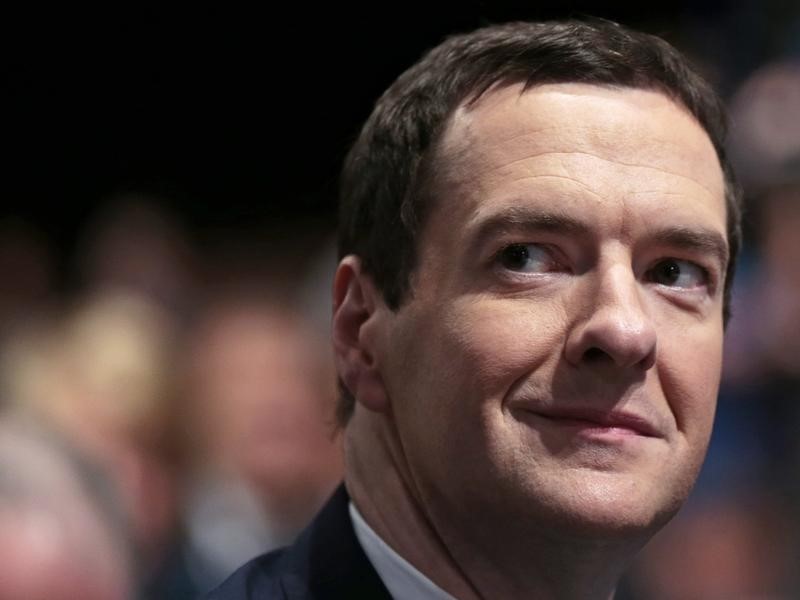By Andy Bruce and William Schomberg
LONDON (Reuters) - Chancellor George Osborne still faces a challenge to hit his target for cutting the budget deficit this year, despite a stronger-than-expected improvement in September, according to data released on Wednesday.
A surge in tax receipts helped bring public borrowing down to 9.4 billion pounds in September from 11.0 billion pounds a year earlier and below economists' forecasts of 10.1 billion pounds.
For the first six months of the tax year, public sector net borrowing was 13.9 percent lower at 46.3 billion pounds. The Office for National Statistics also revised down its borrowing estimates for August and July.
But economists said Osborne will need to make further marked progress to hit his budget deficit target to cut the deficit by 22 percent in the 2015/16 tax year which ends in March.
Monthly borrowing in the second half of the year would need to be almost a third lower than the same period a year earlier, EY ITEM Club economist Martin Beck said.
"With recent signs of a cooling in economic activity likely to make its presence felt in the fiscal data over the next few months, such a fall in borrowing looks unlikely," Beck said.
Osborne aims to cut the budget deficit this year to 69.5 billion pounds, 3.7 percent of gross domestic product -- down from 4.9 percent of GDP in the 2014/15 financial year but still one of the highest among advanced economies.
Income, VAT and corporation tax receipts were the strongest on record for the month of September, the ONS said.
Osborne might overshoot his borrowing goal slightly for this year but public finances were likely to be "broadly balanced by the end of the decade", Investec economist Chris Hale said.
Since his Conservative Party won a majority in an election in May, Osborne has intensified his focus on deficit reduction and wants a budget surplus by 2019/20.
Osborne will announce on Nov. 25 how government departments will make further deep spending cuts over the next four years. Wednesday's figures showed total central government spending hit its highest level for the month since records began in 1993.
Many economists say the easiest cuts have already been made.
Osborne has faced calls within his own Conservative Party to soften the impact of cuts to tax credits on workers that critics say undermine Prime Minister David Cameron's promise to champion working families.

The plans for spending cuts that he will announce next month are certain to be opposed by the Labour Party's new leader Jeremy Corbyn, who wants to raise taxes on the wealthiest.